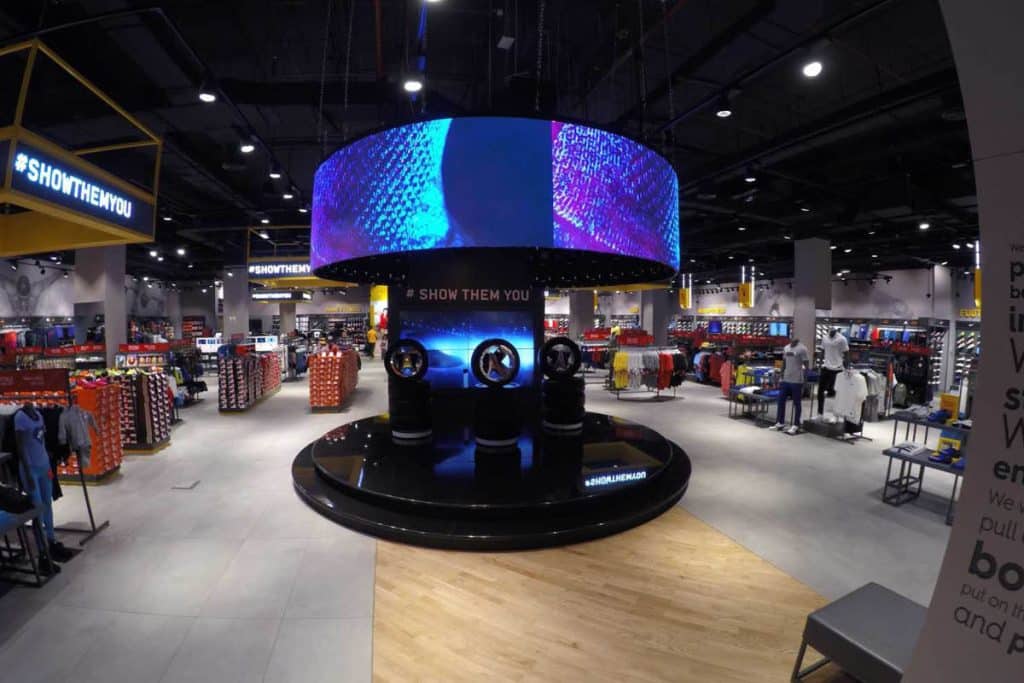
The results of a recent Dubai Chamber of Commerce report on the health of UAE’s e-commerce sector offered few surprises. The study confirmed the upward trajectory of online shopping in the Emirates, which topped $4.8 billion in 2021 compared to $2.6 billion in 2019.
The standout revelation was the dominant position of domestic e-commerce players in the local market, which accounted for 73 percent of total sales in 2021. Homegrown retailers have an advantage international competitors lack – a far better grasp of local market conditions, culture, language, and social nuance.
The GMG Food division is a food manufacturer and brand creator that adds value to the
UAE’s economy by producing locally and supplying its customers with fresh and
nutritious food through two home-grown brands – Farm Fresh, Klassic and now Sapora.
With the addition of the Himalayan pink salt facility, GMG’s food manufacturing business
now boasts six state-of-the-art factories supported by an R&D kitchen and food
laboratory. These facilities cover six product lines: meat, seafood, Himalayan pink salt,
herbs and spices, cold cuts, and butchery and marination.
GMG’s food business has grown from its humble beginnings in the early 1970s as a
butchery and frozen foods distributor to become the partner of choice for international
food and FMCG brands looking for representation throughout the UAE.
This is why major global brands seek local partners to take advantage of their local knowledge, expertise, and regional footprint. This is why more than 120 brands are proud to partner with GMG as we not only pave roads for market access but also enable higher business success by leveraging our extensive, growing presence and experience across the Middle East and Asia.
This knowledge extends to appreciating local demographics and their unique shopping habits. More specifically for the UAE, that means understanding younger shoppers. Gen Z overtook millennials last year globally and now accounts for 32 percent of the world population and 21 percent in the UAE. With an overall spending power of almost $100 billion globally, brands are looking to understand Gen Z better as their consumer habits define the shopping landscape.
Gen Z (born between 1997-2012) is a distinct and unique demographic that responds to specific stimuli. Outwardly, they focus on values and sustainability and look beyond products to understand a brand’s culture. Brands that resonate with Gen Z are the ones that can clearly and authentically articulate this message.
Nike, represented by GMG in the Middle East and parts of Southeast Asia, illustrates this paradigm. The brand remains the No. 1 brand for Gen Z shoppers not just because of its trendy casual clothing and fashionable footwear but also because of its advocacy for social change.
Closer to home, Middle East sports retailer Sun & Sands Sports (SSS) recently launched the SSS 3.0 strategy, encouraging young people to have fun with sports under the “fun to finish” theme while embracing a more holistic approach to health and fitness.
Understanding how the local population interacts with retail spaces is also crucial in winning. The UAE and GCC retail sector differs from the West; here, malls serve an important social and cultural function and are not merely a shopping destination. Indeed, while online shopping is growing fast, it will account only for 12.6 percent of total market sales by 2026. This development demonstrates the long-term relevance of brick-and-mortar retail, growing alongside online shopping.
In response, retailers are setting up omnichannel models that leverage digital innovations and the personal connection to the business that in-store shopping delivers. An ideal omnichannel strategy should seek to replicate the immediacy of a physical store in an online environment, with the ability to react immediately to a customer’s needs, make accurate real-time suggestions and recommend alternatives that can encourage the customer to pick another option or purchase an additional item.
An effective omnichannel strategy, therefore, bridges the gap between physical and virtual retail experiences where the two complement each other, especially since buyers increasingly research products online and then visit the store to see, touch, and complete a purchase.

However, retailers should use more than a one-size-fits-all strategy for online shoppers. Omnichannel enables retailers to mine data for valuable insights. These insights are crucial to hyper-personalisation, which is key to maintaining brand loyalty in the digital age.
Customers today have access to thousands of brands locally and internationally; hyper-personalisation allows retailers to treat customers as individuals with distinct tastes and preferences, enabling brands and retailers to provide a unique customer experience that’s different for each shopper through AI and real-time data analytics.
This attention to detail forges loyalty and a solid emotional connection with customers – one in which they feel seen and heard. A BCG study shows that retailers saw a 25 percent increase in revenue based on the Personalisation Maturity Index due to their advanced personalisation capabilities.
Digital transformation is ingrained in UAE’s national economic plans. Digitising retail, a mainstay of the UAE economy, contributes immensely to these goals. However, to reap the maximum benefits of e-commerce, retailers need to hyper-localise and personalise shopping experiences.
Ultimately, consumers are the winners, who benefit from more convenience, better value for money, and retailers that respond to what they want and not the other way around.
Please visit our website and social media channels for our latest updates:
https://gmg.com/
https://www.instagram.com/gmgvoice/
https://twitter.com/gmgvoice
https://www.facebook.com/GMGVoice/
https://www.linkedin.com/company/10077935/
For more information, please contact: gmg@bcw-global.com